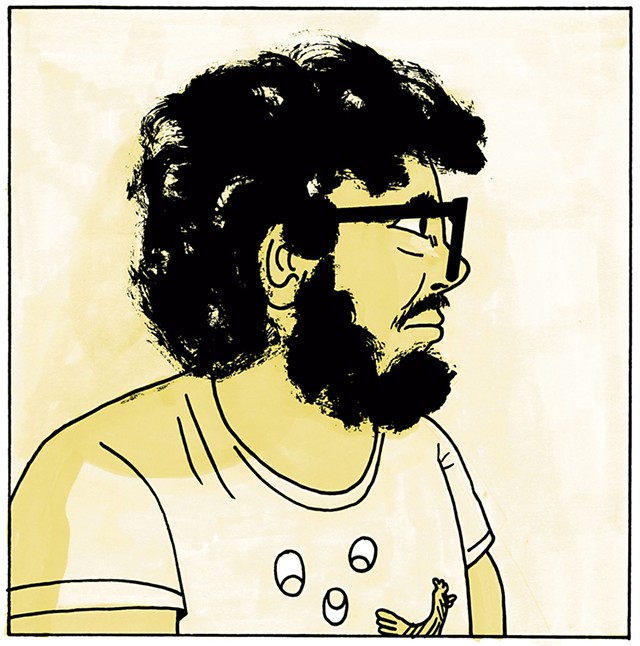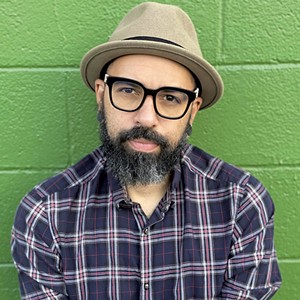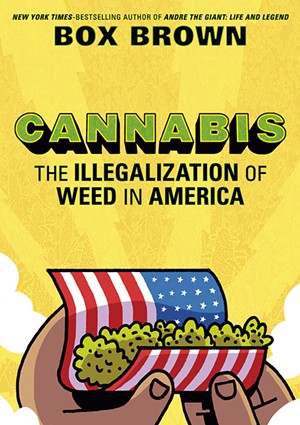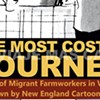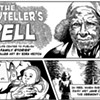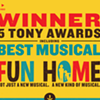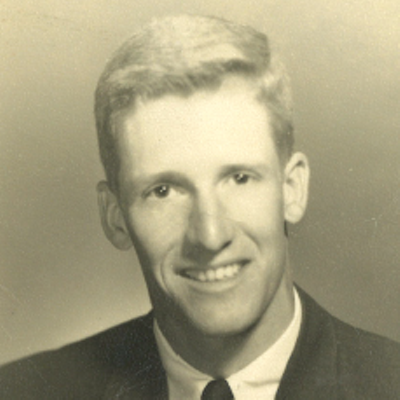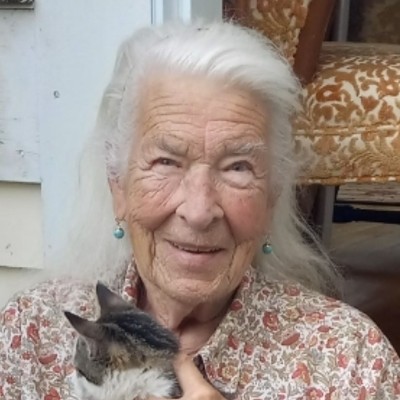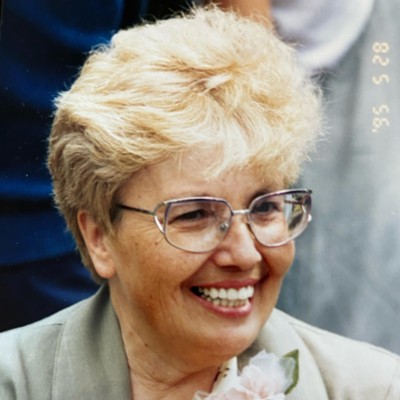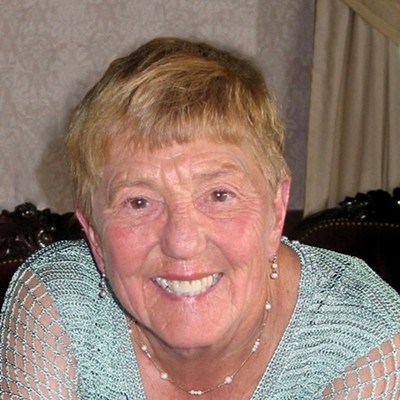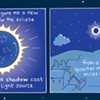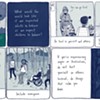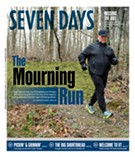Switch to the mobile version of this page.
Vermont's Independent Voice
- News
- Arts+Culture
- Home+Design
- Food
- Cannabis
- Music
- On Screen
- Events
- Jobs
- Obituaries
- Classifieds
- Personals
Browse News
Departments
Browse Arts + Culture
View All
local resources
Browse Food + Drink
View All
Browse Cannabis
View All
-
Business

Cannabis Company Could Lose License for Using…
-
Culture

'Cannasations' Podcaster Kris Brown Aims to 'Humanize'…
-
True 802

A Burlington Cannabis Shop Plans to Host…
-
Business

Judge Tosses Burlington Cannabiz Owner's Lawsuit
-
Health + Fitness

Vermont's Cannabis Nurse Hotline Answers Health Questions…
Browse Music
View All
Browse On Screen
Browse Events
Browse Classifieds
Browse Personals
-

If you're looking for "I Spys," dating or LTRs, this is your scene.
View Profiles
Special Reports
Pubs+More
Published October 12, 2022 at 10:00 a.m.
Nonfiction comics burst with energy and insight. But rather than chronicle the fantastical exploits of superheroes and mutants, as more famous works by the likes of Marvel and DC do, nonfiction comics work on a more human scale. They break down complicated scientific processes and question societal views. They inform, observe and inspire empathy. From memoirs such as Alison Bechdel's Fun Home: A Family Tragicomic to the Vermont Folklife Center's award-winning anthology The Most Costly Journey: Stories of Migrant Farmworkers in Vermont, nonfiction comics encompass a wide and diverse range of styles, stories and subgenres.
This weekend, nonfiction comics creators and fans will come together for the first-ever Non-Fiction Comics Festival in Burlington. Vermonters such as James Kochalka, Glynnis Fawkes and Rachel Lindsay, as well as nonlocals Isabella Rotman and keynote speaker James Spooner, are among more than 40 comics artists attending.
The fest begins on Friday, October 14, with a free screening of Spooner's award-winning documentary Afro-Punk at Merrill's Roxy Cinemas. Panels and special programming on Saturday, October 15, at the Fletcher Free Library cover topics ranging from figure drawing to research. The fest closes on Sunday, October 16, with free workshops at the library.
"What we hope to do is to bring these people together in an interest in the form as it relates to certain types of storytelling," Vermont Folklife Center associate director and archivist and festival co-organizer Andy Kolovos said.
Kolovos has been interested in comics since he was a kid. In his work at the Folklife Center, he has focused on ethnographic representation — the portrayal of different ethnicities and cultures — through comics. The Vermont Folklife Center has produced nonfiction comics projects such as The Most Costly Journey and Turner Family Stories: From Enslavement in Virginia to Freedom in Vermont, which recounted the history of Grafton storyteller Daisy Turner and her ancestors.
"At one point or another, I started wondering, Can I connect these interests in my work? — so, basically, anthropological-style research with comics," Kolovos said. As he thought more about it, he realized, "We should do some comics events."
The Non-Fiction Comics Festival explores a range of genres, including science, memoir, autobiography, politics and history. Kolovos has run smaller festivals and events, such as the Pulp Culture Comic Arts Festival and Symposium in 2018, for which the Folklife Center partnered with the Fleming Museum at the University of Vermont, and the Non-Fiction Comics Mini-Fest in 2019 at the Saint Albans Museum.
"We wanted to expand on those ideas and organize an 'official' nonfiction comics festival, as nothing purely focused on nonfiction comics exists in the comic convention world, despite being a fast-growing genre," co-organizer Teppi Zuppo said.
Zuppo, an adjunct professor at Champlain College, is working with Kolovos and Barbara Shatara, the programs and partnerships librarian at the Fletcher Free Library, to organize the festival. Zuppo has previously worked with Kolovos on a number of comics-related projects, tabled at indie comics shows throughout the U.S. and Canada, and is the workshop coordinator for the Small Press Expo, one of the largest indie comics festivals in North America.
"I find comics to be a great tool in accessibility of information. As someone who's neurodiverse, specifically ADHD, my ideal form of gathering knowledge is in comics," Zuppo said. "Comics keep my attention, break down information into bite-sized pieces and add clarity through imagery.
"It's easy for me to be overwhelmed by a giant textbook or prose novel," Zuppo continued. "I'm never overwhelmed by a comic, no matter the size."
Biologist Caroline Hu, who is speaking on Saturday's "Invention and Research" panel, uses comics to explain complex scientific processes in her book The Little Scientist.
Hu began reading at a young age and consumed comics from Asia. They gave her access to content by Asians and Asian Americans that was otherwise sparse in popular media. Now the comics community offers Hu joyful connections with other artists.
"Have you ever witnessed, or done yourself, the thing where two people realize they share the same niche interest and just start squealing with joy? For me, it is like that when I meet another person who makes science-inspired comics," Hu said. "I like the feeling of that instant connection. So far, all the science comics people I have interacted with have been curious and kind people."
Brian "Box" Brown, who is speaking on Saturday's "Comics That Change the Conversation" panel, has published five graphic novels, most of which are nonfiction. He is currently working on a weekly comic strip called "Legalization Nation" about cannabis legalization in the U.S.
"They are people who will passionately tell you about the most idiosyncratic things," Brown said of comics artists. "And they will politely listen to stories about your obsessions, too."
Brown approaches his work as if he were making a documentary film. He said the first time he read nonfiction comics, it was "like a revelation." Once he found the subculture, he said, "the rest is history."
Jennifer Hayden, speaking on Saturday's "Graphic Memoir" panel, finds joy in connecting with readers. Her book The Story of My Tits is now available in three languages. Based on her own experiences, Hayden wrote it for women going through breast cancer and their friends and family.
"I've had fan mail from Spain, and I've had women in Italy going through this, writing me letters. And I can't tell you how much that means to me, because I don't speak the languages, and yet I can reach women there, and I can encourage them as they go through that," Hayden said.
She added that she loves reading translated work herself because it has a different outlook, flow, sound and appearance.
For Hu, drawing together nonfiction comics artists and fans at the festival presents an opportunity to network and learn.
"I'm just excited to get to know some other cartoonists," Hu said, "and ... learn from their craft and their work."
The original print version of this article was headlined "Drawn Together"
Related Stories
Got something to say?
Send a letter to the editor
and we'll publish your feedback in print!
Tags: Comics, Non-Fiction Comics Festival, non-fiction comics, James Kochalka, Glynnis Fawkes, Rachel Lindsay, Isabella Rotman, James Spooner
Speaking of...
Comments
Comments are closed.
From 2014-2020, Seven Days allowed readers to comment on all stories posted on our website. While we've appreciated the suggestions and insights, right now Seven Days is prioritizing our core mission — producing high-quality, responsible local journalism — over moderating online debates between readers.
To criticize, correct or praise our reporting, please send us a letter to the editor or send us a tip. We’ll check it out and report the results.
Online comments may return when we have better tech tools for managing them. Thanks for reading.
- 1. How Do I Get Through My First Mother's Day Without Mom? Ask the Rev.
- 2. Theater Review: 'tick, tick… BOOM!,' Vermont Stage Theater
- 3. Q&A: At the Lanpher Memorial Library in Hyde Park, a "Wind Phone" Connects Callers With Lost Loved Ones Stuck in Vermont
- 4. 'Heavy Kinship' at the Tarrant Gallery Contemplates Bodies and Connectedness Art Review
- 5. The Magnificent 7: Must See, Must Do, May 8-14 Magnificent 7
- 6. Simonds, Ruefle, Francis and Nott Win Vermont Book Awards Books
- 7. Video: Visiting the Wind Phone at the Lanpher Memorial Library in Hyde Park Stuck in Vermont
- 1. How a Vergennes Boatbuilder Is Saving an Endangered Tradition — and Got a Credit in the New 'Shōgun' Culture
- 2. Waitsfield’s Shaina Taub Arrives on Broadway, Starring in Her Own Musical, ‘Suffs’ Theater
- 3. This Manchester Center Family Is a National Show Horse Powerhouse Animals
- 4. Video: 'Stuck in Vermont' During the Eclipse Stuck in Vermont
- 5. Pet Project: Introducing the Winners of the 2024 Best of the Beasts Pet Photo Contest Animals
- 6. Vermont Poet Sydney Lea on His New Collections of Verse and Prose Books
- 7. Video: Visiting the Kellogg-Hubbard Library’s PoemCity in Montpelier During the Month of April Stuck in Vermont




























